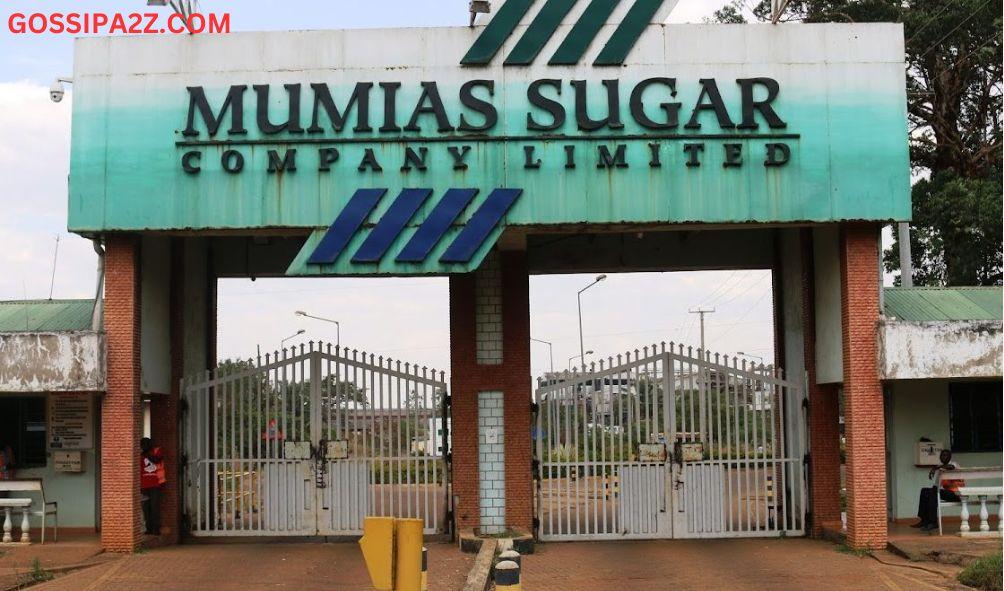Unraveling Mumias Sugar’s Billions: Legal Battles and Creditors
Creditor claims lodged against the insolvent Mumias Sugar Company are at the center of a controversy that includes President William Ruto.
A review of court documents reveals a complex web of petitioners, money in the billions of shillings, and shadowy, opposing forces with competing corporate interests.
The affidavit, sworn by former Treasury Principal Secretary Dr. Julius Monzi Muia in 2022, details the company’s changing fortunes from its first incorporation in June 1971 to its privatization in 2001, with the government retaining 20% ownership through the exchequer and ceding 75.43% to individuals, while institutions received 4.57% ownership of the then-profitable company.
During the fiscal year 2012/2013, however, the sugar miller began incurring net losses, and by the end of 2018, it had incurred losses totaling Ksh. 39.44 billion, at which point it ceased operations.
As of June 2018, the company’s borrowings, principal loans, and interest payments from both domestic and foreign governments totaled Ksh 12,59 billion.
The former PS stated in the same affidavit that Mumias owed Proparco Ksh.1.9 billion at the time, secured by the electricity generation facility.
The court document also indicates that the miller owed Ecobank Ksh.2.08 billion and the government, through the Kenya Sugar Board Commodity Fund and the National T6reasury, owed a total of Ksh.4.81 billion in unsecured debt for which no loan agreement had been executed.
The prime agricultural land of Mumias was used as collateral for loans from KCB, CBA, Barclays, and Stanbic Banks.
In 2019, Mumias was placed under court-ordered insolvency, but creditors consented to give the administration a chance before resorting to liquidation to recover their funds.
Advocate Jackline Kimetto, who is owed nearly Ksh.77 million by the sugar company, accuses the first administrator, Ponangipali Venkata Raman Rao, of failing to satisfy the creditors as agreed. Among other reasons, he was terminated in April of last year for gross incompetence and corruption.
In the same year, another administrator, Kereto Marima, was appointed, but he was dissatisfied with his responsibilities, which included meeting with creditors, conducting proof of debt, and submitting a report to the insolvency court.
Kimetto asserts in an affidavit that the company’s efforts to settle its debts have been repeatedly thwarted.
Kimetto also alleges that KCB Bank and the first administrator, Rao, have not only acted as the only creditors owed money by the sinking company but have also abused the legal processes by misleading the court into issuing overlapping rules by pleading inconsistent positions and tampering with the administration of justice by corrupting court processes.
She also claims that Mumias was unlawfully transferred to the Sarrai Group to seize 15,000 hectares of land known as the core.
Due to the absence of an administrator, she adds, the company’s assets have become vulnerable to theft.
In her affidavit, Kimetto accused the Sarrai group of systematically stripping Mumias Sugar of its assets, the most recent being a wheel loader that was taken from Mumias Sugar and is presently being used to load timber logs on Sarrai’s property.
She also asserts that law enforcement officials have failed to act on such complaints, despite being made aware of the incidents.
Police in Mumias have received additional reports of stolen property, including computers, water system pipelines from residential homes, and industrial gas cylinders.
She also accused Sarrai of removing machinery, motors, and other equipment from Mumias and cannibalizing the sugar company at the expense of debtors.
While the court battles continue, the government, which holds a 20% stake in the company, has once again pledged to inject new life into the troubled miller by erasing debts and purchasing new machinery.
This will not be the first time that the government, under different administrations, has attempted to rescue Mumias, which is now managed by the Ugandan-based Sarrai Group.
The company’s proprietor, business magnate Sarbjit Singh Rai, is embroiled in a legal dispute with his billionaire brother Jaswant Rai, who owns West Kenya Sugar, over the 20-year lease granted to Sarrai and how Mumias Sugar was transferred to him.
Unraveling Mumias Sugar’s Billions: Legal Battles and Creditors
